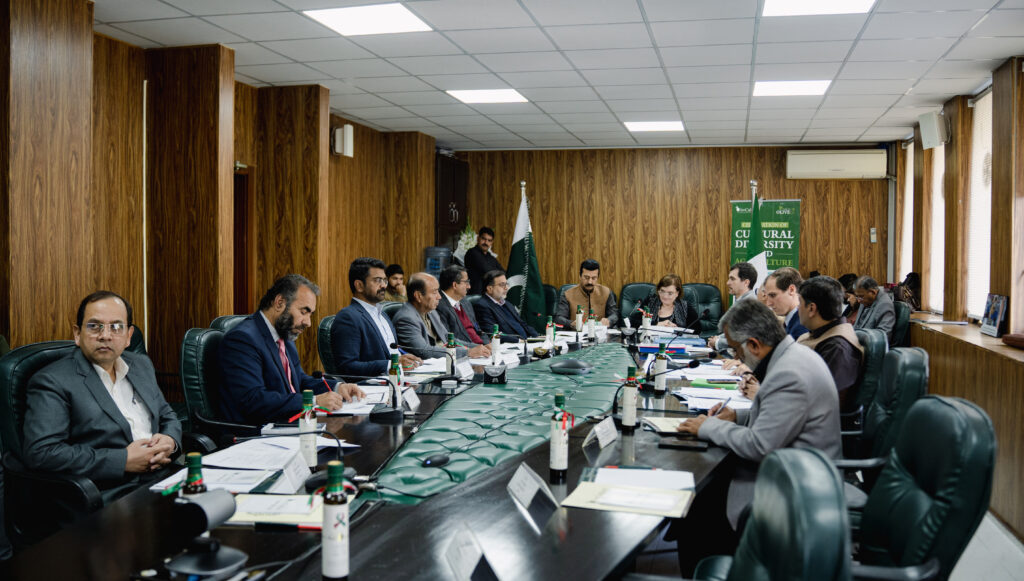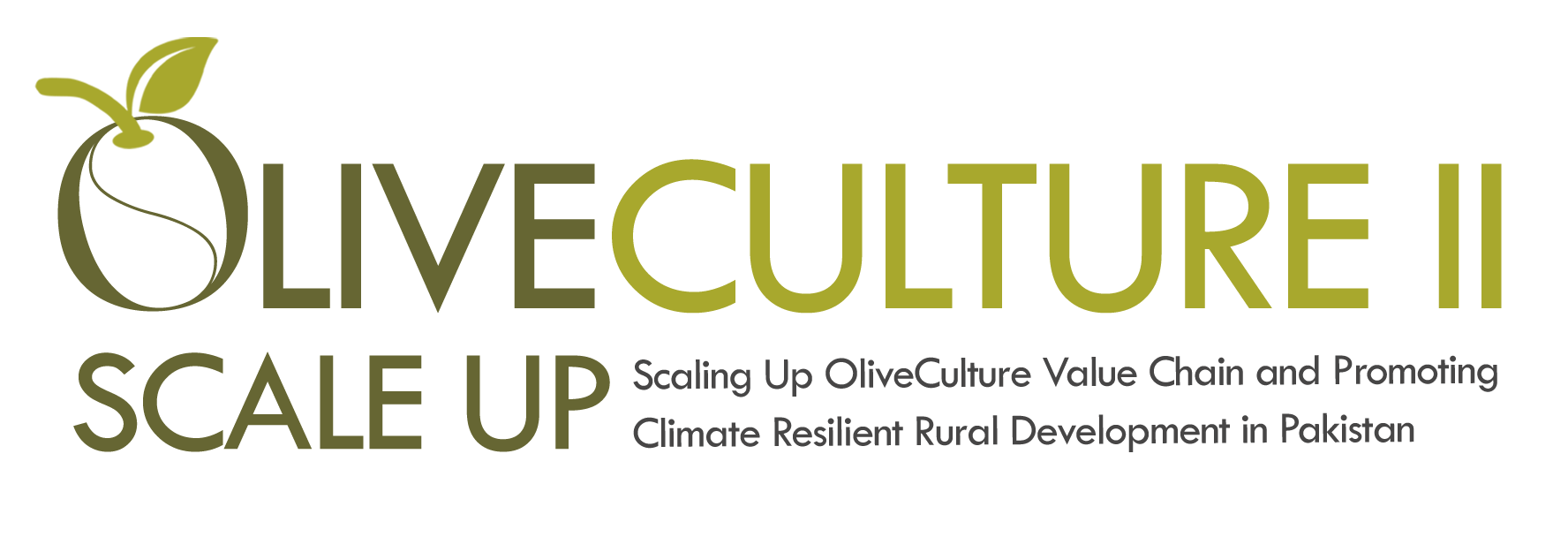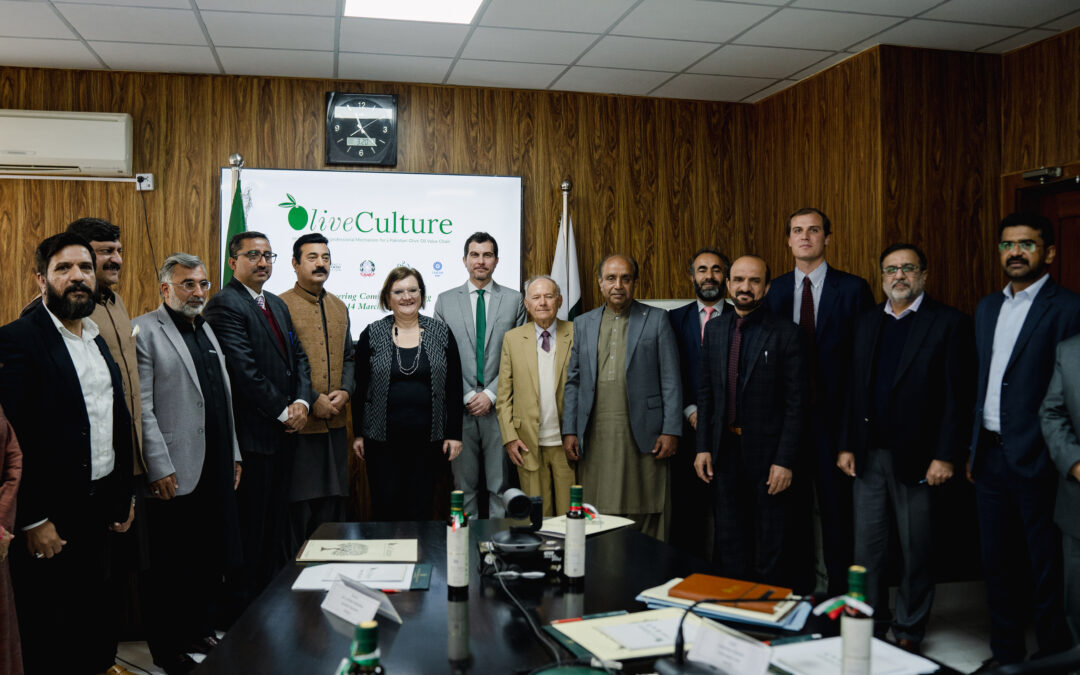 The 4th Steering Committee meeting for the “OliveCulture – Holistic and Multiprofessional Mechanism for a Pakistani Olive Oil Value Chain” Project convened today in Islamabad, marking another significant step towards enhancing Pakistan’s olive sector. Chaired by Capt.(R) Muhammad Asif, Secretary of the Ministry of National Food Security & Research, Government of Pakistan, and co-chaired by Her Excellency Ms. Marilina Armellin, Ambassador of Italy in Pakistan, the meeting served as a platform for strategic discussions and collaborative efforts.
The 4th Steering Committee meeting for the “OliveCulture – Holistic and Multiprofessional Mechanism for a Pakistani Olive Oil Value Chain” Project convened today in Islamabad, marking another significant step towards enhancing Pakistan’s olive sector. Chaired by Capt.(R) Muhammad Asif, Secretary of the Ministry of National Food Security & Research, Government of Pakistan, and co-chaired by Her Excellency Ms. Marilina Armellin, Ambassador of Italy in Pakistan, the meeting served as a platform for strategic discussions and collaborative efforts.
Dr. Syed Waseem ul Hassan, Managing Director of the Pakistan Oilseed Department (POD), extended a warm welcome, acknowledging the invaluable two-year contribution of the Italian Government to the growth of Pakistan’s olive sector. Dr. Luigi Cavestro, representative of CIHEAM Bari, Her Excellency Ms. Marilina Armellin, Ambassador of Italy in Pakistan, Capt.(R) Muhammad Asif, Secretary of the Ministry of National Food Security & Research, and Mr. Francesco Zatta, Director of the Italian Agency for Development Cooperation (AICS), expressed their appreciation towards the work done so far by the OliveCulture Project, emphasizing the close cooperation of the Federal Ministry and the Provinces. The consistent pace maintained throughout the initiative was acknowledged and valued, as well as the partnership between Italian and Pakistani experts, which is deemed essential for nurturing olive cultivation and enhancing olive oil production. Without these fruitful collaborations, the objectives of the venture would be unattainable. While Pakistan’s environment is inherently conducive to olive cultivation, prior government engagements at provincial and federal levels were limited in their impact. The substantial success was truly realized with the technical assistance provided by Italian partners.
The OliveCulture staff presented the achievements made within the OliveCulture Project. They highlighted the transformative potential of olive cultivation, particularly in rural communities with available arable land and those with marginal or unused land, as a means of poverty alleviation.
The Steering Committee approved all the items as per the agenda and decided to extend the project until June 2024.


